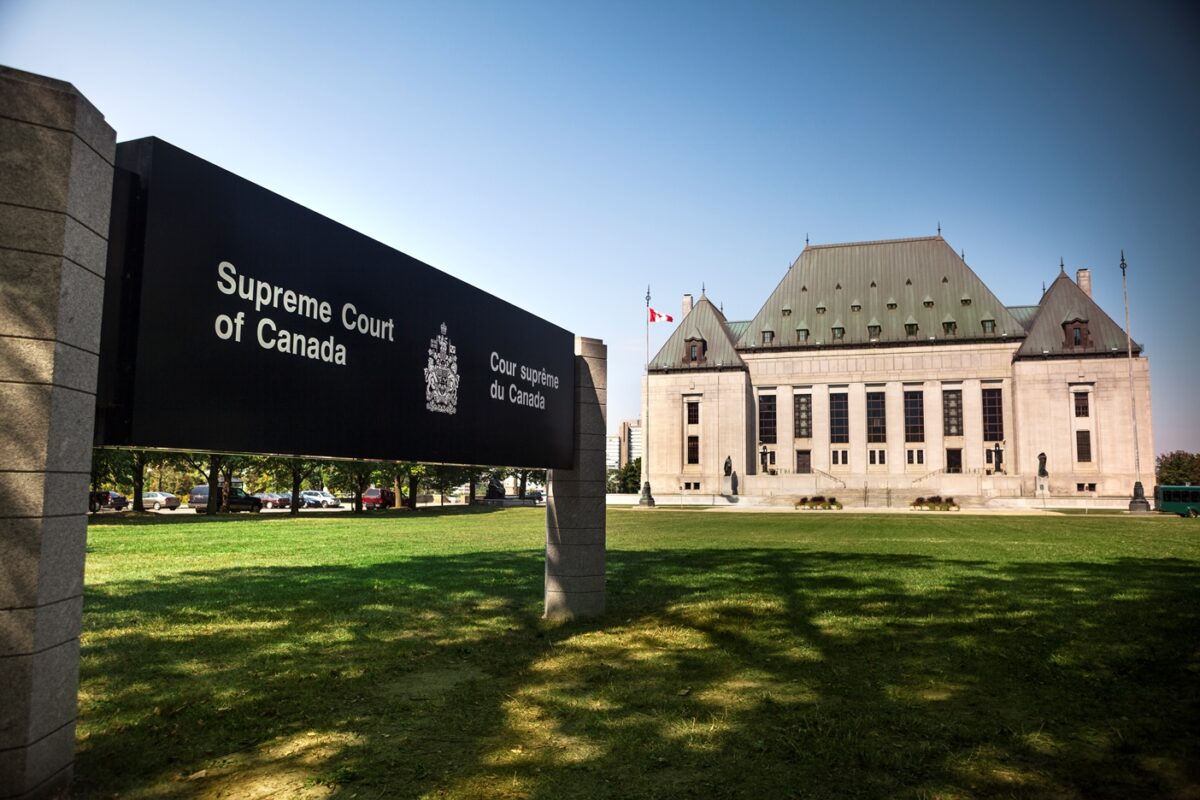Bill C-92 is before the Supreme Court of Canada. Where does this leave First Nations?

This blog was written in conjunction with Deidre Louw, Kathryn Graham and Signy Franklin of MNP LLP.
An Act respecting First Nations, Inuit and Métis children, youth and families, SC 2019, c. 24 (“Bill C-92”) came into force three years ago now. This blog post provides a high-level overview of Bill C-92 and the current constitutional challenge to Bill C-92 as well as practical considerations for Indigenous communities considering making their own child and family services (“CFS”) laws.
PART I
Overview
Bill C-92 is an attempt to change the way CFS must be delivered to Indigenous people. It does this in two ways:
- (1) it establishes minimum standards for how CFS, including prevention and protection services, must be provided to Indigenous children; and
- (2) it recognizes and affirms that Indigenous peoples’ inherent right of self-government includes jurisdiction over CFS, specifically, it recognizes and affirms Indigenous peoples’ inherent right to make and administer their own CFS laws.
Minimum standards
Bill C-92 provides that all CFS service providers and the courts must comply with the minimum standards when they are administering CFS laws. For example, to the extent that it is consistent with the best interests of the child:
- (1) CFS must be provided to Indigenous children in a manner that takes into account their culture;
- (2) prevention services must be prioritized over protection services;
- (3) an Indigenous child cannot be apprehended solely on the basis of their socio-economic conditions; and
- (4) before removing an Indigenous child from the care of a parent or other adult family member, the CFS service provider must demonstrate that they made reasonable efforts to have the child continue to reside with that person.
Bill C-92 also sets out rules regarding the placement of Indigenous children who have been removed from the care of their parents or care providers.
In addition to requiring compliance with the minimum standards, Bill C-92 must be interpreted and administered in accordance with three principles:
- (1) the best interests of the child;
- (2) cultural continuity; and
- (3) substantive equality, including between Indigenous children and other children.
To determine the best interests of a child, all factors related to the circumstances of the child must be considered. Bill C-92 sets out specific factors that must be considered when determining the best interests of an Indigenous child in the CFS context. Further, when a CFS service provider or court is considering those factors, they must give primary consideration to the importance, for that child, of having an ongoing relationship with their family and Indigenous community and preserving the child’s connections to their culture. The best interests of the child must be a primary consideration in all CFS decisions, and it must be the paramount consideration in removal decisions.
Jurisdiction in relation to CFS
Since Bill C-92 became law, the following six Indigenous communities have passed their own CFS law under the Bill C-92 framework – three came into force in 2021 and three came into force in 2022:
- Wabaseemoong Independent Nations (ON, January 2021)
- Cowessess First Nation (SK, April 2021)
- Louis Bull Tribe (AB, October 2021)
- Peguis First Nation (MB, January 2022)
- Atikamekw of Opitciwan (QB, January 2022)
- Inuvialuit Regional Corporation (NWT, November 2022)
Almost 40 Indigenous communities have provided notice to Canada of their intention to exercise their legislative authority in relation to CFS under the Bill C-92 framework.[1] We anticipate that more communities will do so in the coming months and years.
Coordination agreements
When an Indigenous community intends to exercise their inherent jurisdiction over CFS under the Bill C-92 framework, they may also request that the federal and applicable provincial and territorial governments enter into a coordination agreement.
Bill C-92 provides that if an Indigenous community enters into a coordination agreement with Canada and the applicable provinces and territories, or makes reasonable efforts to enter into one, the Indigenous community’s CFS will have the force of law as federal law and prevail over conflicting or inconsistent federal, provincial or territorial laws, subject to certain exceptions. More than 20 other Indigenous communities have requested coordination agreements since Bill C-92 became law.[2] So far, five Indigenous communities have entered into coordination agreements:
- Cowessess First Nation (SK, July 2021)
- Wabaseemoong Independent Nations (ON, March 2022)
- Peguis First Nation (MB, January 2023)
- Louis Bull Tribe (AB, February 2023)
- Splatsin First Nation (BC, March 2023)
Constitutional challenge
The Province of Quebec recently challenged the constitutionality of Bill C-92. On February 10, 2022, the Quebec Court of Appeal[3] held that Bill C-92 falls within federal jurisdiction and that Indigenous peoples’ right of self-government in relation to CFS is an Aboriginal right protected under Section 35 of the Constitution Act, 1982. However, the Quebec Court of Appeal also held that the provision which provides that Indigenous CFS laws have the force of law as federal law in certain circumstances and the provision which provides that they will prevail over conflicting or inconsistent provincial legislation are unconstitutional. The effect of this decision is confirmation that the right of self-government includes jurisdiction over CFS which further entrenches that Indigenous communities can make their own CFS laws; however, the Quebec Court of Appeal is of the view that Indigenous CFS laws will not automatically prevail over conflicting or inconsistent provincial laws.
The constitutionality of Bill C-92 is currently being considered by the Supreme Court of Canada; we are monitoring this case closely and will provide an update once it releases its decision. We are happy to discuss the potential implications that the Supreme Court of Canada decision may have on specific Indigenous communities regardless of where they are at in their CFS legislative journey.
PART II
Where does this leave Indigenous communities?
Indigenous communities can access government capacity funding in order to explore their readiness to exercise their inherent jurisdiction over CFS and develop their own laws. This provides an opportunity for Indigenous communities considering exercising their CFS jurisdiction to commence the process of determining what services they would like to deliver and how those services should be delivered to support and protect their children and families in a way that is important to their communities.
Funding
In February 2022, Indigenous Services Canada announced the availability of funding to support Indigenous communities wishing to explore readiness to exercise legal jurisdiction and to develop their own laws, systems and programs to prepare for coordination agreement discussions. There are three types of funding: (i) funding to meet immediate needs, (ii) capacity funding and (iii) coordination agreement funding. Capacity funding ends once a coordination table is triggered.
Immediate Funding to Support CFS
While work is underway to prepare for legal jurisdiction, there is funding available to address immediate needs. This funding is based on an Agreement in Principle related to the complaint before the Canadian Human Rights Tribunal regarding discrimination in Canada’s First Nations CFS program.
- Prevention and First Nations Representative Services funding
Prevention funding, calculated at $2,500 per person living on reserve, is divided between the First Nation and the agency that is designated to serve the First Nation community. There is also funding of $283 per member living on reserve for First Nations Representative Services which is intended to enable a First Nation to ensure the rights of First Nations children and youth are respected within the CFS system and may include direct staff and related programs as well as support from legal counsel. This Prevention funding and First Nations Representative Services funding have been flowing automatically to First Nations since the summer of 2022. While no application is required, First Nations are required to report on use of the funds consistent with the terms and conditions of the funding.
- Post-majority funding
Funding is also available for Post Majority Support Services to youth that aged out of care and are currently between 18-26 years old. This funding supports a wide range of services, from accommodations, education, mental health and other supports to help the transition to independence. This funding is available on a claim basis for actual costs.
- Capital funding
Capital funding for infrastructure or facilities to support Prevention and Jordan’s Principle programs has also been ordered by the Canadian Human Rights Tribunal Order 41.[4] For example, this funding could be used to construct or renovate capital assets on reserve and under special consideration purchase land on which a building is to be built or purchase real estate off reserve that will be used in the delivery of such programs.
Capacity Funding
The two criteria for capacity funding are the intent to exercise legal jurisdiction within the next five years, and sound administrative and fiscal management. Proposals may be multi-year (for up to five years) and are generally allocated on a yearly basis. Maximum annual funding amounts are based on the size and location of the Indigenous community and range from $250,000 per year for a community under 1,500 people near an urban centre to $650,000 per year for a remote community with a population over 1,500 people. Funding of up to $2 million per year is also available for Indigenous organizations representing multiple communities, or large Treaty or regional organizations.
In addition to law development, capacity funding can be used for community engagement, readiness and needs assessments, strategic planning, service delivery model research, program and policy development, professional advice, IT assessments, business planning and financial model and budget development.
Coordination Agreement Funding
Once an Indigenous community seeks to enter discussions for a coordination agreement, there is separate funding, intended to enable the community to participate in the negotiation process and is generally intended to align with the one-year time frame for negotiation in Bill C-92.
Transition, Implementation and Operational funding are typically built into the terms of fiscal agreements that are negotiated along with the coordination agreements.
Readiness assessments
Indigenous communities interested in making changes to the CFS system affecting their children and families should consider how they can make this transition most effective and efficient. Conducting a self-assessment may be a good place to start on the path to legal jurisdiction.
Community engagement is also critically important to ensure an understanding of the community needs and priorities. This both helps to understand the needs to be addressed by the law and in fiscal agreements and ensure community support for a new system under the Indigenous law. Further, communities should consider establishing a working group which may include council members, elders, youth and various professional service providers to keep communication open and the process moving forward.
Wherever a community is at today, a self-assessment and community engagement will help identify the investments needed to move from today to the community’s desired future state. This information also helps to build plans and budgets that can form the basis of successful fiscal agreement negotiations.
Drafting and implementing legislation
Once an Indigenous community has determined that they would like to exercise their inherent CFS jurisdiction under the Bill C-92 framework, they can begin drafting their CFS law.
Business planning and budget development to support fiscal agreements
It is really important that Indigenous communities and organizations come to the coordination table prepared. This means understanding how services will be delivered under the new law, what staffing, administrative and governance structures are needed, how disputes will be resolved, what IT and communication systems are required, and what resources the children and families served by the programs will need. It is also critical for Indigenous communities and organizations to understand the associated cost for operations, capital needs, and the time and cost to transition to full operations. Indigenous communities or organizations that have these factors well-documented are in a much stronger position to negotiate a needs-based budget and a long-term fiscal agreement. These plans also provide guidance for the implementation teams working on the transition to the new system. They are also an effective tool for communicating the plan and reporting on progress to leadership and the community, helping to move forward as quickly as possible.
Contact us to learn more
MLT Aikins LLP has a team of lawyers with experience assisting Indigenous communities draft their own CFS laws. We are happy to assist Indigenous communities at all stages of community consultation, drafting, enacting and implementing their CFS laws, as well as negotiating coordination agreements. Contact us to learn more.
MNP has a team of seasoned consultants with experience in supporting community self-assessments, engagement, planning, technology roadmaps, and capturing this all in the critical documents (business plan and budget) required to support effective negotiations at the coordination table. We are happy to assist at all stages of the capacity building process, from applying for capacity building funding and readiness assessments to triggering a coordination table. Contact us to learn more.
Note: This article is of a general nature only and is not exhaustive of all possible legal rights or remedies. In addition, laws may change over time and should be interpreted only in the context of particular circumstances such that these materials are not intended to be relied upon or taken as legal advice or opinion. Readers should consult a legal professional for specific advice in any particular situation.
[1] https://www.sac-isc.gc.ca/eng/1608565826510/1608565862367
[2] https://www.sac-isc.gc.ca/eng/1608565826510/1608565862367
[3] Renvoi à la Cour d’appel du Québec relatif à la Loi concernant les enfants, les jeunes et les familles des Premières Nations, des Inuits et des Métis, 2022 QCCA 185.
[4] https://decisions.chrt-tcdp.gc.ca/chrt-tcdp/decisions/en/item/516900/index.do?q=2021+CHRT+41







